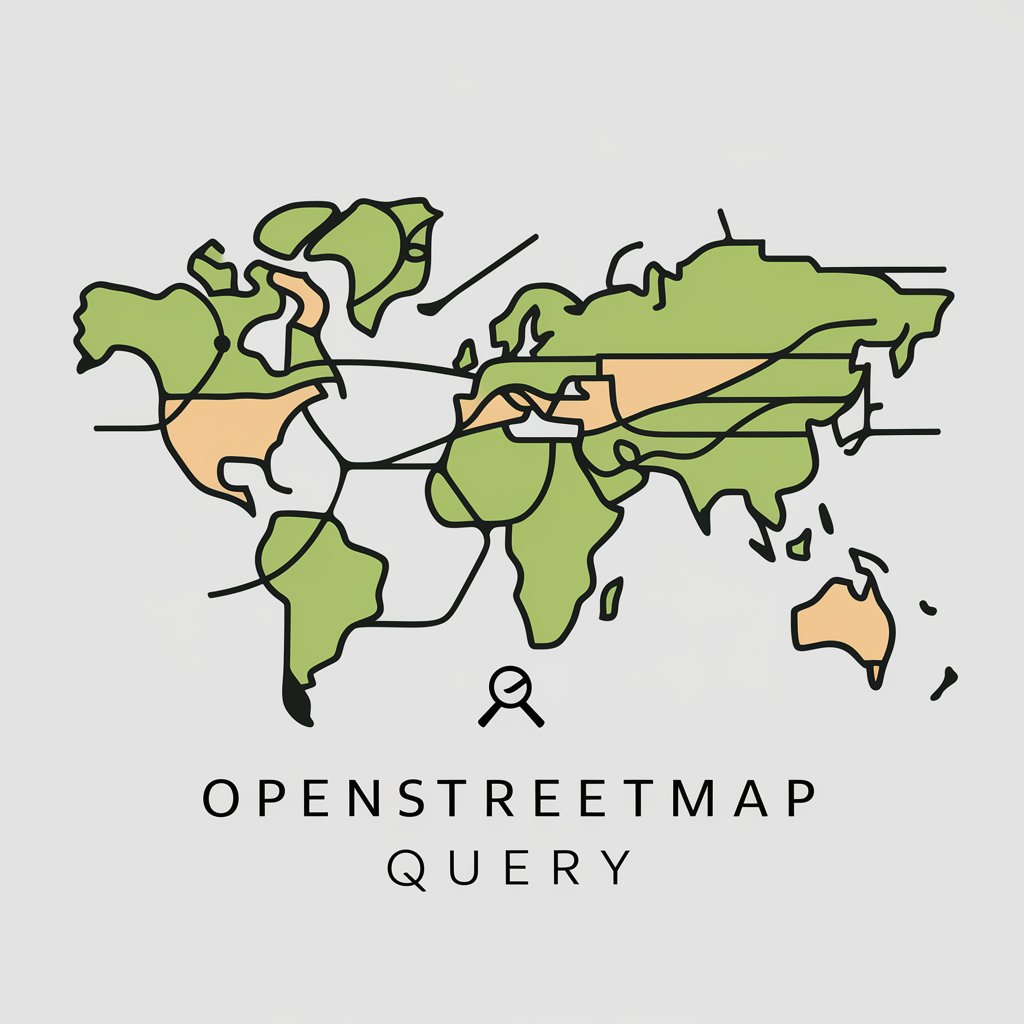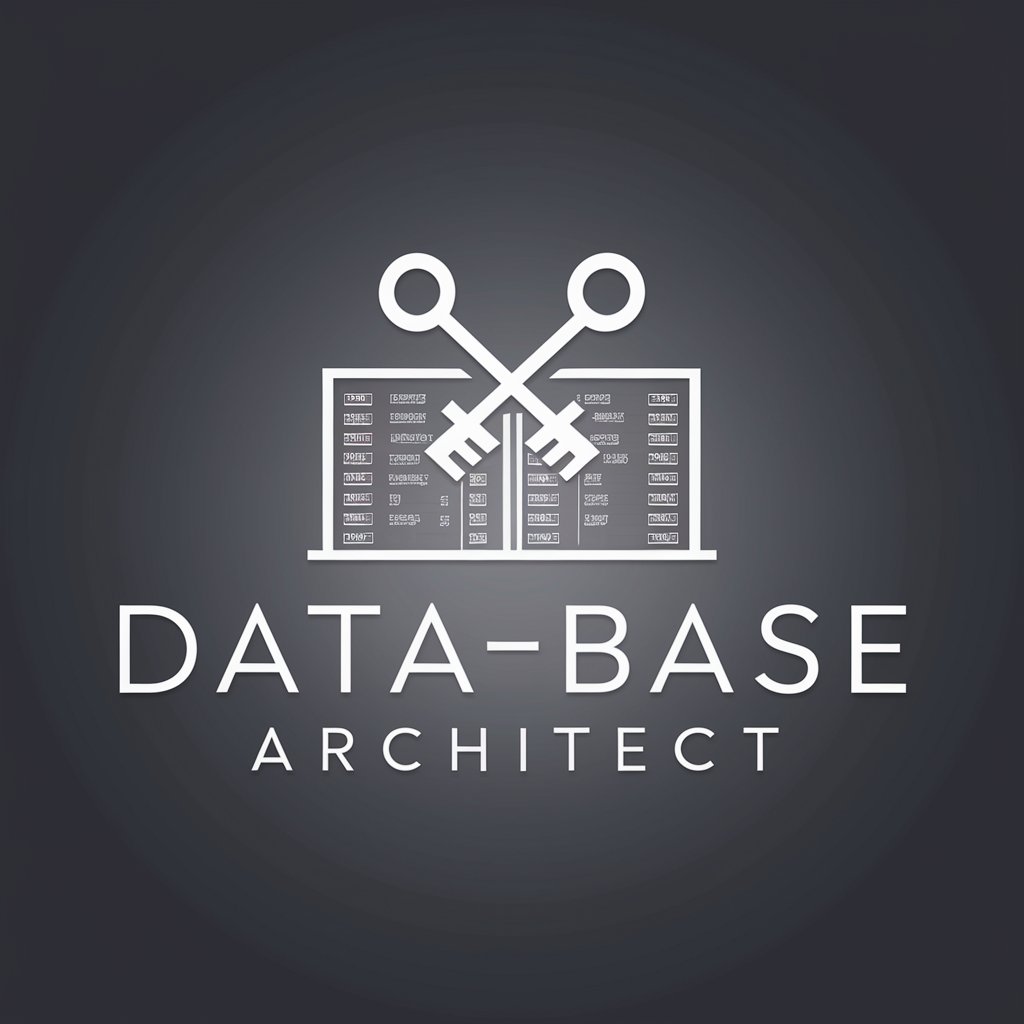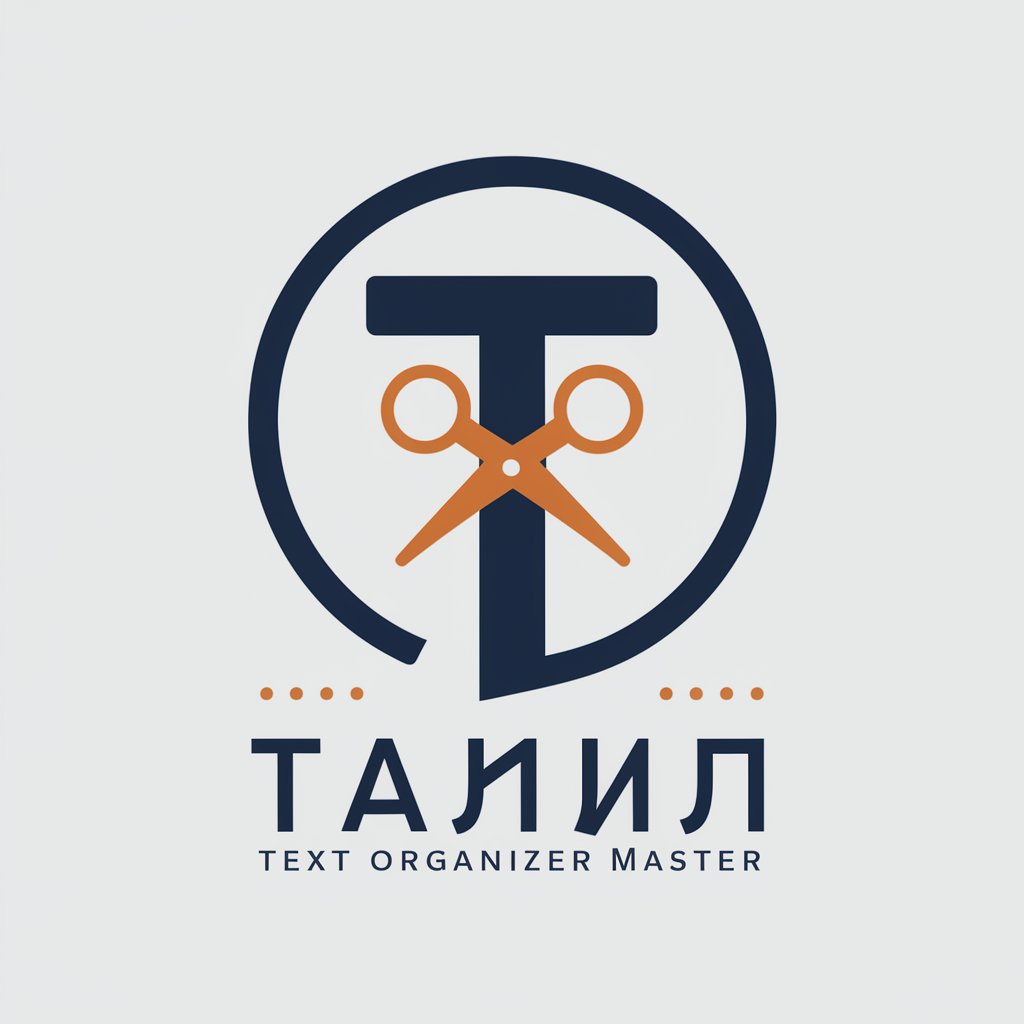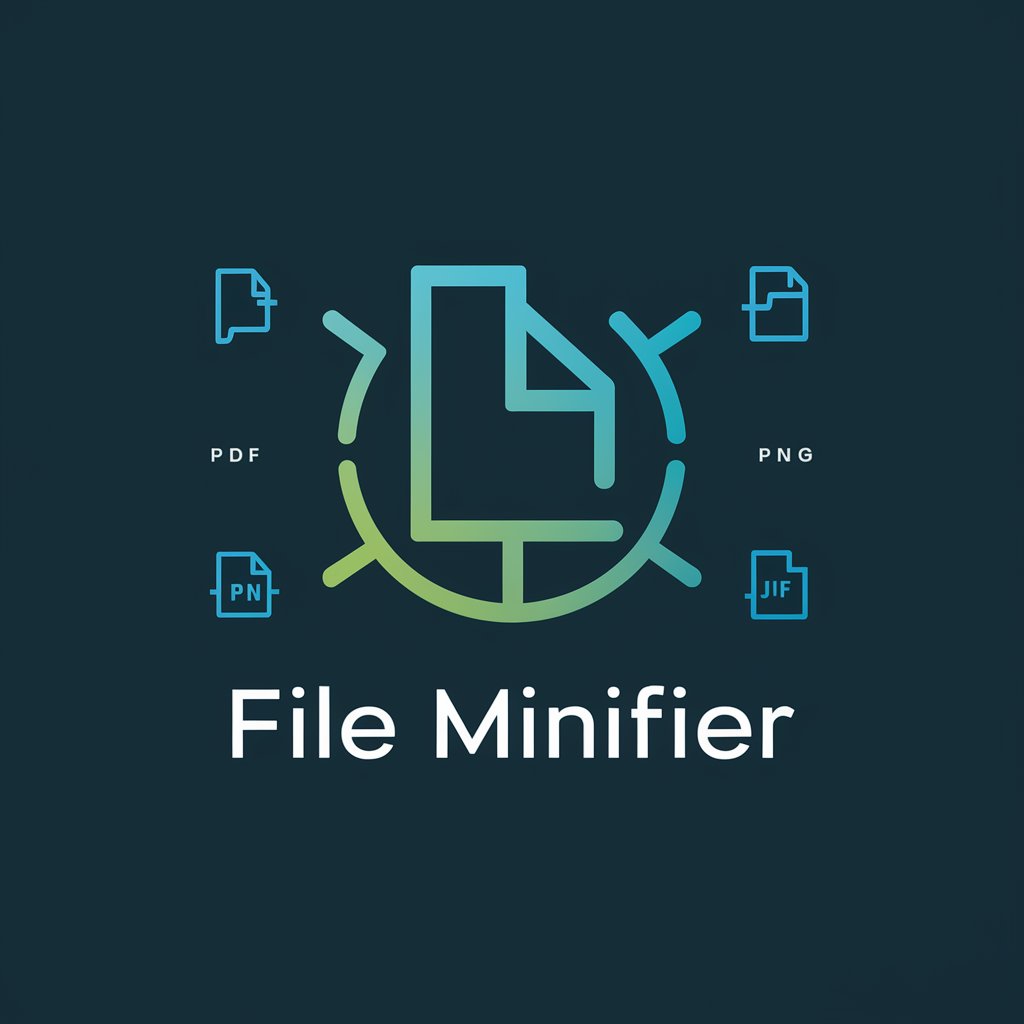Overpass API Query Generator for OpenStreetMap - Geospatial Query Creation Tool

Welcome! Let's generate precise geospatial queries together.
Crafting Maps with AI-Powered Precision
Find buildings within 500 meters of
Locate natural features such as
Query for road bridges that
Search for shops that are not
Get Embed Code
Overview of Overpass API Query Generator for OpenStreetMap
The Overpass API Query Generator for OpenStreetMap is a specialized tool designed to create precise Overpass QL (Query Language) queries. These queries extract specific geospatial data from the extensive OpenStreetMap (OSM) database. This tool is adept at handling a wide array of queries, including the extraction of data on buildings, natural features like hills, infrastructure such as bridges, and even complex spatial relationships, like proximity of certain features to others. The primary purpose of this tool is to facilitate users in accessing and manipulating OSM data effectively, tailored to their specific requirements. Powered by ChatGPT-4o。

Core Functions of Overpass API Query Generator
Data Extraction for Specific Features
Example
[out:json][bbox:{{bbox}}];nwr["building"];(._;>;);out qt;
Scenario
Used to extract data of all buildings in a specified bounding box area.
Queries Involving Spatial Relationships
Example
[out:json][bbox:{{bbox}}];nwr["building"]->.buildings;nwr["waterway"]->.waterways;nwr.buildings(around.waterways:300);(._;>;);out qt;
Scenario
Helpful for urban planners to find buildings within a 300m radius of rivers.
Exclusionary Searches
Example
[out:json][bbox:{{bbox}}];(nwr["shop"!="charity"];nwr["shop"!="cafe"];);(._;>;);out qt;
Scenario
Useful for market analysts seeking to identify specific types of shops, excluding charity shops and cafes.
Complex Spatial Queries with Specific Locations
Example
[out:json];{{geocodeArea:York,England}};nwr["building"](area)->.buildings;nwr["leisure"="park"](area)->.parks;nwr.buildings(around.parks:100);(._;>;);out qt;
Scenario
Valuable for local government authorities in York, England, to analyze building distribution near parks.
Target User Groups for Overpass API Query Generator
Urban and Regional Planners
Planners can leverage this tool for detailed urban mapping and planning, analyzing infrastructure layouts and urban development projects.
Geospatial Data Analysts
These professionals can utilize the tool to gather, analyze, and visualize spatial data for various analysis and research purposes.
Researchers in Environmental and Social Sciences
Researchers can use this tool to understand geographical and social patterns, like urban sprawl, environmental impacts on certain areas, or demographic distributions.

Guidelines for Using Overpass API Query Generator
1
Visit yeschat.ai for a free trial without login, also no requirement for ChatGPT Plus.
2
Familiarize yourself with OpenStreetMap (OSM) data structure and tagging system to understand what data can be queried.
3
Learn the basics of Overpass Query Language (Overpass QL), which is used to formulate queries in the generator.
4
Use the query generator to create specific queries based on your requirements, like extracting geographical features or spatial relationships.
5
Test and refine your queries using Overpass Turbo, an online tool that visualizes the results of Overpass API queries.
Try other advanced and practical GPTs
Database Architect
Empowering Database Design with AI

Wagmi Master
Simplify blockchain development with AI

文字整理大师
Streamlining Text with AI Precision

AI Game Quest
Embark on an AI Adventure

Deadly Maze
Navigate, Solve, Conquer: An AI-Powered Dungeon Journey

Fundraising Advisor
Elevate Your Fundraising with AI-Powered Insights

漫画制作の聴覚、触覚に特化したGPT
Elevate Manga with AI-Powered Sensory Details

Seer's Screaming Frog & Technical SEO Companion
Elevate SEO with AI-Powered Insight

File Minifier
Compress Smartly with AI-Powered Precision

DivineFeed
Bringing Divine Insights to Your Fingertips

Memoji Maker
Bring your selfies to life with AI

Situacions d'Aprenentatge CAT
Craft Tailored Educational Experiences with AI

Q&A on Overpass API Query Generator
What is Overpass API Query Generator?
It's a tool designed to create queries for extracting specific data from OpenStreetMap using Overpass API.
Can it generate queries for complex spatial relationships?
Yes, it can create queries for complex spatial relationships, like proximity of features to each other.
Is it suitable for users without coding experience?
While some basic understanding of query language helps, the generator simplifies the process, making it more accessible.
Can I use it for large-scale data extraction?
Yes, but be mindful of server load and performance issues with very large or complex queries.
Does it support queries for non-standard OSM tags?
It primarily supports standard OSM tags, but advanced users can modify queries for non-standard tags.
